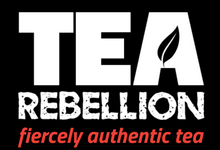
Discover the Impact of Smallholder Sourced Tea
Explore the profound impact of smallholder-sourced tea, cultivated by local farmers worldwide. Each cup carries a story of tradition, resilience, and sustainability, supporting communities, boosting local economies, and protecting the environment. From farm to cup, discover how choosing smallholder tea empowers producers and drives positive change through conscious consumption.
Exploring the Benefits and Challenges of Smallholder Sourced Tea
When exploring the benefits and challenges associated with smallholder sourced tea, it becomes evident that the choices made in sourcing tea leaves can have far-reaching impacts on various stakeholders, from farmers to consumers. Smallholder sourced tea not only ensures the preservation of authentic flavors that reflect the unique terroir of the region but also plays a significant role in supporting the livelihoods of farmers and promoting sustainable agricultural practices.
Benefits of Smallholder Sourced Tea
One of the primary benefits of opting for smallholder sourced tea is the maintenance of true-to-origin flavors. Unlike mass-produced teas that often blend leaves from various sources, teas sourced from smallholder farmers maintain a distinct taste profile that captures the essence of the specific region where the tea is cultivated. This not only enhances the sensory experience for tea enthusiasts but also contributes to the preservation of cultural heritage and traditional farming practices.
Moreover, choosing smallholder sourced tea can have a positive impact on the lives of farmers and their communities. By supporting small-scale tea producers, consumers can help uplift rural economies, provide stable incomes for farmers, and contribute to poverty alleviation. Additionally, smallholder sourcing encourages environmentally friendly farming methods, such as organic and sustainable practices, which promote biodiversity, soil health, and overall ecosystem resilience.
Challenges Faced by Smallholder Farmers
Despite these benefits, smallholder farmers in the tea industry face several challenges that can hinder their productivity and economic stability. Limited access to essential resources, including finance, technology, and training, often constrains their ability to improve yield and quality. Furthermore, fluctuations in tea prices, influenced by global market dynamics and competition, can leave farmers vulnerable to income insecurity and financial risks.
Role of Cooperatives in Empowering Smallholder Farmers
To address these challenges, cooperatives play a pivotal role in empowering smallholder farmers. By pooling resources, sharing knowledge, and collectively bargaining for fair prices, cooperatives enable farmers to overcome market barriers, negotiate better deals with buyers, and access credit facilities. Often cooperatives have been able to invest. in. their own. factory and thereby helped smallholders out of the need to sell tea as green leaf. By selling finished tea through a cooperative, smallholders can fetch a better price.
Conclusion
The significance of smallholder sourced tea extends beyond a mere beverage choice; it embodies a commitment to ethical consumption, sustainable agriculture, and social responsibility. By recognizing the value of supporting smallholder farmers, consumers can contribute to a more equitable and environmentally conscious tea industry. While challenges persist, the resilience and dedication of these farmers, coupled with the support of cooperatives and conscientious consumers, pave the way for a brighter future for smallholder sourced tea.
Conclusion
Smallholder-sourced tea highlights the vital role local farmers play in sustainable, ethical tea production. Their commitment to quality, community empowerment, and eco-friendly practices supports local economies and protects the environment. Choosing smallholder tea allows consumers to drive positive change and promote a fair, sustainable tea industry.
